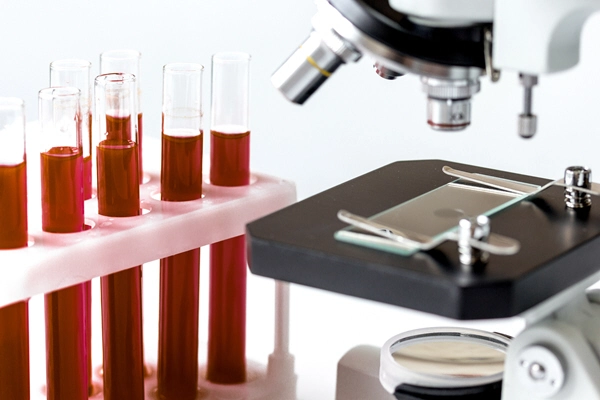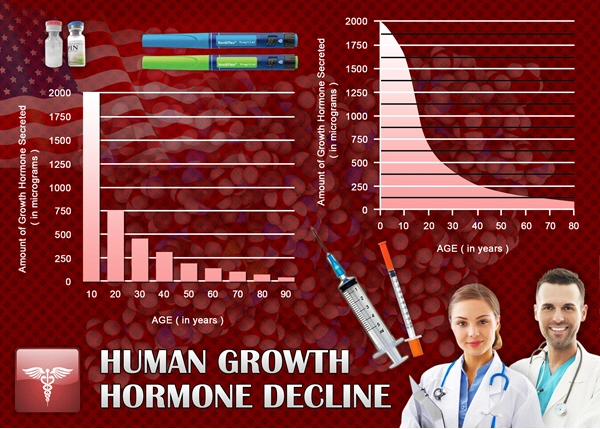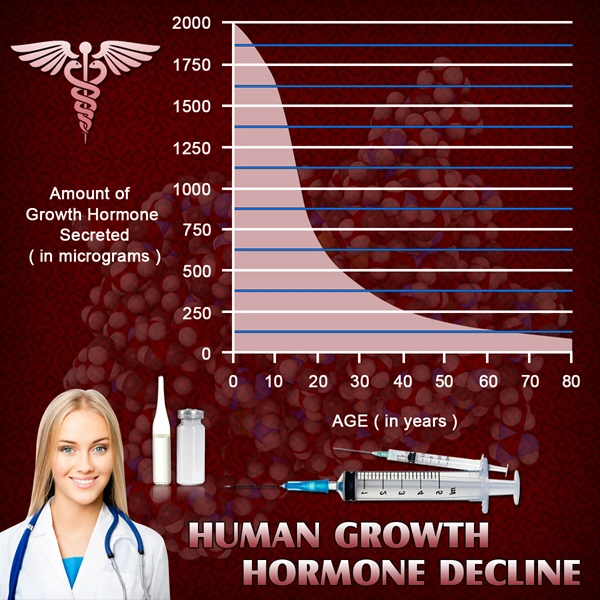Introduction to Urological Health
Urological health is a critical yet often overlooked aspect of men's health in the United States. As men age, the prevalence of urological conditions such as benign prostatic hyperplasia (BPH), prostate cancer, and erectile dysfunction increases, significantly impacting their quality of life. Integrating urological health into men's wellness programs is essential for early detection, effective management, and improved outcomes.
The Prevalence of Urological Conditions
In the United States, urological conditions are alarmingly common among men. According to the American Urological Association, over 50% of men over the age of 60 experience symptoms of BPH, a non-cancerous enlargement of the prostate gland. Prostate cancer is another significant concern, with the American Cancer Society estimating that one in nine American men will be diagnosed with prostate cancer during their lifetime. Additionally, erectile dysfunction affects approximately 30 million American men, often leading to psychological distress and relationship issues.
The Importance of Early Detection
Early detection of urological conditions can significantly improve treatment outcomes and quality of life. Regular screenings, such as prostate-specific antigen (PSA) tests and digital rectal exams, are crucial for the early detection of prostate cancer. For BPH, early intervention can prevent complications such as urinary retention and kidney damage. Men's health programs should emphasize the importance of these screenings and encourage men to discuss their urological health with healthcare providers regularly.
Incorporating Urological Health into Men's Wellness Programs
Men's wellness programs in America must prioritize urological health to address the specific needs of male patients. These programs should include educational components that inform men about common urological conditions, their symptoms, and the importance of early detection. Workshops and seminars led by urologists can provide valuable information and encourage men to take proactive steps towards managing their health.
The Role of Lifestyle in Urological Health
Lifestyle factors play a significant role in urological health. Maintaining a healthy diet, regular exercise, and avoiding smoking can reduce the risk of developing urological conditions. Men's wellness programs should offer guidance on lifestyle modifications that can improve urological health. For instance, a diet rich in fruits, vegetables, and whole grains, combined with regular physical activity, can help manage BPH symptoms and reduce the risk of prostate cancer.
Addressing Psychological Aspects
Urological conditions can have a profound psychological impact on men. Conditions such as erectile dysfunction can lead to feelings of inadequacy and depression. Men's health programs should include mental health support, such as counseling services, to help men cope with the emotional aspects of urological conditions. By addressing both the physical and psychological components, these programs can provide comprehensive care.
Challenges and Opportunities
One of the main challenges in integrating urological health into men's wellness programs is overcoming the stigma associated with discussing urological issues. Many men feel embarrassed or reluctant to seek help for conditions such as erectile dysfunction or urinary problems. To address this, men's health programs should create a supportive and non-judgmental environment that encourages open dialogue about urological health.
There are also significant opportunities for collaboration between urologists, primary care physicians, and men's health organizations. By working together, these stakeholders can develop comprehensive programs that address the full spectrum of men's health needs, including urological health. Telemedicine and digital health platforms can also play a role in increasing access to urological care, especially for men in rural or underserved areas.
Conclusion
Urological health is a vital component of men's overall wellness, and its integration into men's health programs in America is essential. By focusing on early detection, lifestyle modifications, and comprehensive care that addresses both physical and psychological aspects, these programs can significantly improve the health outcomes of American men. As the prevalence of urological conditions continues to rise, the importance of prioritizing urological health in men's wellness programs cannot be overstated.

- Urological Health Guide: Conditions, Sexual Wellness, and Lifestyle Impact on American Men [Last Updated On: March 8th, 2025] [Originally Added On: March 8th, 2025]
- Modern Urology: Minimally Invasive, Advanced Diagnostics, Telemedicine for American Males [Last Updated On: March 18th, 2025] [Originally Added On: March 18th, 2025]
- Urological Conditions and Their Impact on Male Fertility: Diagnosis and Treatment [Last Updated On: March 18th, 2025] [Originally Added On: March 18th, 2025]
- Genetics and Urological Health: Insights for American Men's Well-being [Last Updated On: March 19th, 2025] [Originally Added On: March 19th, 2025]
- Preventing Urological Infections in American Males: Risks, Measures, and Health Strategies [Last Updated On: March 19th, 2025] [Originally Added On: March 19th, 2025]
- Exercise and Urological Health: A Comprehensive Guide for American Men [Last Updated On: March 20th, 2025] [Originally Added On: March 20th, 2025]
- Urological Health Strategies for American Men: Balancing Work and Wellness [Last Updated On: March 20th, 2025] [Originally Added On: March 20th, 2025]
- Urological Health Guide for American Men: Symptoms, Conditions, and Prevention [Last Updated On: March 21st, 2025] [Originally Added On: March 21st, 2025]
- Smoking's Impact on Urological Health in American Men: Risks and Cessation Benefits [Last Updated On: March 21st, 2025] [Originally Added On: March 21st, 2025]
- Hydration's Vital Role in Urological Health for American Males: Strategies and Benefits [Last Updated On: March 21st, 2025] [Originally Added On: March 21st, 2025]
- Supplements and Urological Health: Benefits and Considerations for American Men [Last Updated On: March 21st, 2025] [Originally Added On: March 21st, 2025]
- Managing Urological Pain in Men: Causes, Diagnosis, and Treatment Options [Last Updated On: March 22nd, 2025] [Originally Added On: March 22nd, 2025]
- Urological Health in American Men: Conditions, Mental Well-being, and Holistic Management [Last Updated On: March 23rd, 2025] [Originally Added On: March 23rd, 2025]
- Urological Rehabilitation: Enhancing Quality of Life for American Men [Last Updated On: March 23rd, 2025] [Originally Added On: March 23rd, 2025]
- Heart Health and Urological Function: Critical Connections for American Males [Last Updated On: March 23rd, 2025] [Originally Added On: March 23rd, 2025]
- Urological Health's Psychological Impact on American Males: A Holistic Approach [Last Updated On: March 23rd, 2025] [Originally Added On: March 23rd, 2025]
- Obesity's Impact on Urological Health in American Men: Risks and Management Strategies [Last Updated On: March 23rd, 2025] [Originally Added On: March 23rd, 2025]
- Urological Surgery Recovery Guide for U.S. Males: Tips and Strategies [Last Updated On: March 23rd, 2025] [Originally Added On: March 23rd, 2025]
- Technological Advances Revolutionizing Urological Diagnosis for American Males [Last Updated On: March 23rd, 2025] [Originally Added On: March 23rd, 2025]
- Urological Education: Empowering American Males for Better Health Outcomes [Last Updated On: March 23rd, 2025] [Originally Added On: March 23rd, 2025]
- Veterans' Urological Care: Specialized Services and Innovative Treatments by VHA [Last Updated On: March 23rd, 2025] [Originally Added On: March 23rd, 2025]
- Urological Health Strategies for American Men Over 50 [Last Updated On: March 23rd, 2025] [Originally Added On: March 23rd, 2025]
- Medications' Impact on Urological Health: Insights for American Men [Last Updated On: March 24th, 2025] [Originally Added On: March 24th, 2025]
- Urological Health: Vital Screening for Young American Males' Well-being [Last Updated On: March 24th, 2025] [Originally Added On: March 24th, 2025]
- Essential Urological Procedures for American Males: A Comprehensive Guide [Last Updated On: March 24th, 2025] [Originally Added On: March 24th, 2025]
- Urological Health and Fertility: A Guide for American Males Planning Families [Last Updated On: March 24th, 2025] [Originally Added On: March 24th, 2025]
- Urological Health and Mental Well-being: A Holistic Approach for American Men [Last Updated On: March 24th, 2025] [Originally Added On: March 24th, 2025]
- Urological Health in Sports: Risks, Prevention, and Nutrition for Athletes [Last Updated On: March 25th, 2025] [Originally Added On: March 25th, 2025]
- Stress Impact on Urological Health in American Males: Prostate, Sexual, and Urinary Effects [Last Updated On: March 25th, 2025] [Originally Added On: March 25th, 2025]
- Urological Health: Vital for American Men's Longevity and Quality of Life [Last Updated On: March 25th, 2025] [Originally Added On: March 25th, 2025]
- Urological Health and Sleep Quality: A Vital Connection for American Men [Last Updated On: March 25th, 2025] [Originally Added On: March 25th, 2025]
- Urological Health Management Tips for American Men Traveling [Last Updated On: March 25th, 2025] [Originally Added On: March 25th, 2025]
- Urological Health and Insurance: Navigating Coverage for Men's Well-being [Last Updated On: March 26th, 2025] [Originally Added On: March 26th, 2025]
- Urological Health: Impact and Management for American Men's Quality of Life [Last Updated On: March 26th, 2025] [Originally Added On: March 26th, 2025]
- Urological Health: Vital for American Men's Wellness and Quality of Life [Last Updated On: March 26th, 2025] [Originally Added On: March 26th, 2025]
- Debunking Urological Myths: Empowering American Men with Health Facts [Last Updated On: March 26th, 2025] [Originally Added On: March 26th, 2025]
- Managing Urological Health in Men: Chronic Conditions and Strategies [Last Updated On: March 26th, 2025] [Originally Added On: March 26th, 2025]
- Dietary Guide for Urological Health in American Men: Nutrition and Hydration Focus [Last Updated On: March 27th, 2025] [Originally Added On: March 27th, 2025]
- Urological Health and Cancer: Vital Insights for American Males [Last Updated On: March 27th, 2025] [Originally Added On: March 27th, 2025]
- Urological Health and Bone Density: A Vital Connection for American Males [Last Updated On: March 27th, 2025] [Originally Added On: March 27th, 2025]
- Alcohol's Impact on Urological Health: Risks and Mitigation Strategies for Men [Last Updated On: March 28th, 2025] [Originally Added On: March 28th, 2025]
- Urological Health's Impact on American Men's Social Lives and Management Strategies [Last Updated On: March 28th, 2025] [Originally Added On: March 28th, 2025]
- Environmental Impacts on Urological Health in American Males: Risks and Mitigation Strategies [Last Updated On: March 28th, 2025] [Originally Added On: March 28th, 2025]
- Urological Health Guide for American Males: Best Practices and Prevention [Last Updated On: March 28th, 2025] [Originally Added On: March 28th, 2025]
- Urological Health Essentials for American Men: Prevention, Screening, and Lifestyle [Last Updated On: March 28th, 2025] [Originally Added On: March 28th, 2025]
- Urological Health and Hearing Loss: A Critical Connection in American Males [Last Updated On: March 28th, 2025] [Originally Added On: March 28th, 2025]
- Exercise and Urological Health: Benefits, Safe Practices, and Specific Exercises for American Males [Last Updated On: March 28th, 2025] [Originally Added On: March 28th, 2025]
- Urological Health and Skin Care: A Vital Connection for American Males [Last Updated On: March 28th, 2025] [Originally Added On: March 28th, 2025]
- Urological Health and Immunity: Strategies for American Males [Last Updated On: March 29th, 2025] [Originally Added On: March 29th, 2025]
- Integrating Urological Health into Men's Campaigns: A Vital Step for American Males [Last Updated On: March 29th, 2025] [Originally Added On: March 29th, 2025]
- Urological Health Linked to Vision Problems in American Men: Importance of Screenings [Last Updated On: March 29th, 2025] [Originally Added On: March 29th, 2025]
- Urological Health Advocacy: Enhancing Men's Well-being in the U.S. [Last Updated On: March 29th, 2025] [Originally Added On: March 29th, 2025]
- Urological Health: Key to Men's Sexual Wellness in America [Last Updated On: March 29th, 2025] [Originally Added On: March 29th, 2025]
- Urological-Dental Health Link: Implications for American Men's Well-being [Last Updated On: April 1st, 2025] [Originally Added On: April 1st, 2025]
- Urological-Respiratory Health Link: Impacts and Management for American Males [Last Updated On: April 4th, 2025] [Originally Added On: April 4th, 2025]
- Urological Health: Vital for American Men's Wellness and Research Focus [Last Updated On: April 4th, 2025] [Originally Added On: April 4th, 2025]
- Urological Health in Men: Importance, Detection, and Lifestyle Impact in America [Last Updated On: April 5th, 2025] [Originally Added On: April 5th, 2025]
- Urological and Digestive Health: Vital Connections for American Males' Well-being [Last Updated On: April 6th, 2025] [Originally Added On: April 6th, 2025]
- Enhancing Urological Health Policy for American Men: Needs and Strategies [Last Updated On: April 7th, 2025] [Originally Added On: April 7th, 2025]
- Urological Health and Neurological Impact in American Males: A Comprehensive Overview [Last Updated On: April 9th, 2025] [Originally Added On: April 9th, 2025]
- Urological Health's Impact on American Men's Careers: Strategies for Management [Last Updated On: April 9th, 2025] [Originally Added On: April 9th, 2025]
- Urological Health's Impact on Men's Family Life in the U.S.: Challenges and Support [Last Updated On: April 10th, 2025] [Originally Added On: April 10th, 2025]
- Urological Health and Endocrine System: Vital Connections for Men's Well-being [Last Updated On: April 10th, 2025] [Originally Added On: April 10th, 2025]
- Urological and Cardiovascular Health: Vital Connections and Preventive Strategies for American Males [Last Updated On: April 10th, 2025] [Originally Added On: April 10th, 2025]
- Urological and Musculoskeletal Health Link in American Men: A Holistic Approach [Last Updated On: April 11th, 2025] [Originally Added On: April 11th, 2025]
- Urological Health: Vital for American Men's Wellness and Longevity [Last Updated On: April 13th, 2025] [Originally Added On: April 13th, 2025]
- Urological Health's Impact on Men's Reproductive Well-being and Fertility [Last Updated On: April 15th, 2025] [Originally Added On: April 15th, 2025]



List of USA state clinics - click a flag below for blood testing clinics.
Word Count: 622



















































